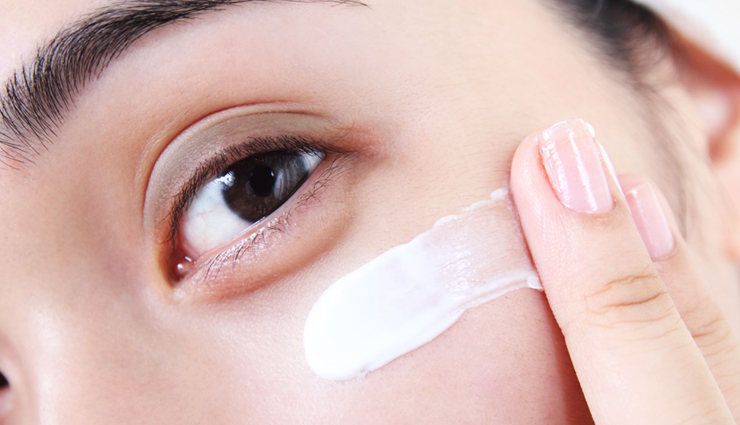
The skin beneath our eyes is particularly delicate and sensitive compared to other facial areas. This is due to its thinness and the limited number of oil glands available to moisturize and protect it. Additionally, the muscles around the eyes are in constant motion, leading to the development of wrinkles and fine lines over time. Furthermore, environmental factors such as sun exposure, pollution, and stress can further aggravate these concerns.
Given the thin and sensitive nature of the skin around the eyes, certain ingredients should never be applied in this area. Here are some substances to avoid when it comes to the under-eye region.

The ingredient known for its anti-aging properties is frequently present in products that claim to address the appearance of fine lines and wrinkles. However, there are instances where these ingredients can be highly irritating to the skin, particularly the sensitive skin surrounding the eyes. According to the expert, applying retinoids in the under-eye area can lead to skin redness, dryness, and flakiness.
Salicylic acid is widely recognized as an effective ingredient for combating acne, as it aids in exfoliating the skin and clearing out clogged pores. Nonetheless, its potency can be unsuitable for the delicate under-eye area, potentially resulting in irritation and dryness of the skin.
Hydrogen peroxide, a potent oxidizing agent commonly utilized for hair lightening and wound disinfection, can prove too harsh for the sensitive skin surrounding the eyes. Its application in this area may lead to adverse effects such as redness, stinging, and irritation.
The allure of sweet-smelling products is universal, and fragrance is a prevalent ingredient found in skincare and cosmetic items. However, it is essential to note that fragrances can potentially cause irritation, particularly for individuals with sensitive skin. The under-eye area, in particular, is susceptible to fragrances' adverse effects, leading to sensations of stinging, itching, and redness.
Essential oils are frequently incorporated into skincare routines due to their therapeutic qualities, but it's crucial to exercise caution when applying them to the delicate skin around the eyes. Certain essential oils, such as peppermint and eucalyptus, can induce stinging and irritation. Additionally, oils like lemon and lime have the potential to heighten photosensitivity, increasing the risk of sun damage.
Cinnamon, a spice favored by some for its potential acne-fighting properties, should be approached with caution when it comes to the sensitive skin under the eyes. Applying cinnamon or cinnamon extracts in this area can lead to excessive irritation and a burning sensation. It is advisable to steer clear of products that contain cinnamon or its extracts specifically for the under-eye region.
Skincare products that contain alcohol, such as toners or astringents, can have a dehydrating and irritating effect on the delicate under-eye area. Alcohol has the tendency to strip away the skin's natural oils and moisture, resulting in dryness and heightened sensitivity.
Exfoliants that are excessively harsh, such as walnut shells or large sugar granules, should be avoided for the under-eye area. These rough exfoliants can be overly abrasive and have the potential to cause micro-tears, resulting in redness or damage to the skin's protective barrier.